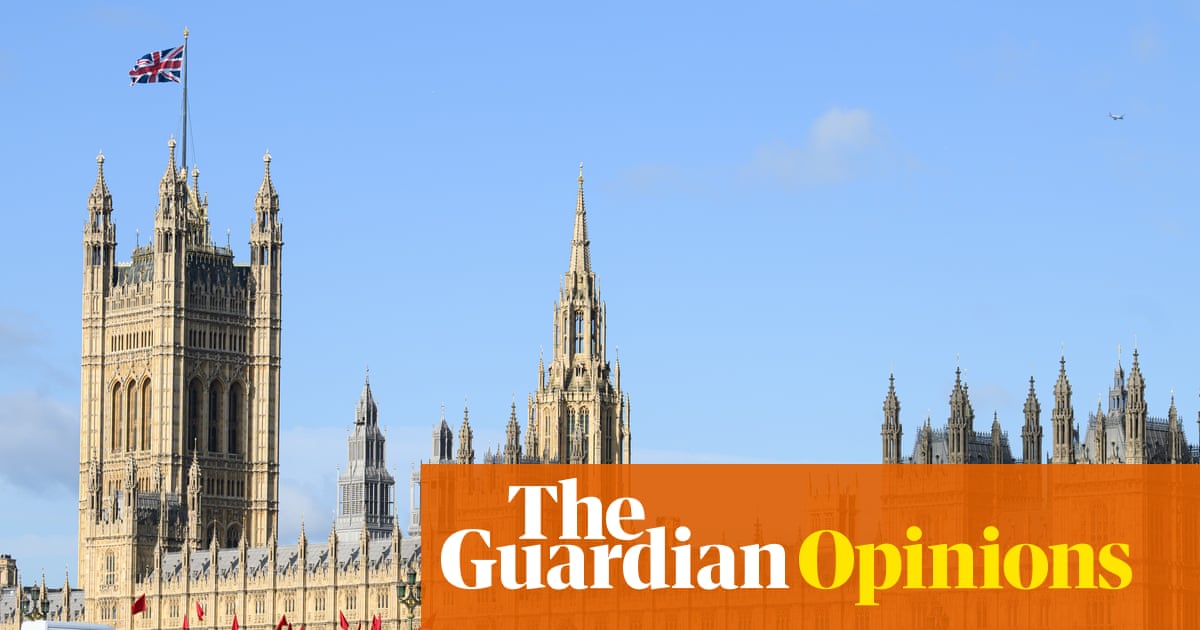Opinion
Our world is hurtling into climate disaster and what do politicians give us? Oilfields and new runways | Bill McGuire
Read more on post.

The hope that followed the signing of the Paris climate agreement in 2016 has long gone as the global community has failed utterly to rein in emissions, which – barring a small pandemic-induced blip in 2020 – have headed remorselessly upwards ever since. And there is little sign of this changing anytime soon. Indeed, as global heating has accelerated over the past few years, instead of trying harder, the world is turning its back on measures to tackle the climate crisis.
In the UK, Labour is considering the approval of two major new oilfields in the North Sea – Rosebank and Jackdaw – with both Keir Starmer and Rachel Reeves reported to be backing the proposals, which would lock in reliance on fossil fuels at the expense of renewables. Alongside this, instead of the government introducing measures to reduce aviation emissions, such as a frequent-flyer levy and the taxing of aviation fuels, a Heathrow expansion has been greenlit and, just last week, a second runway at Gatwick.
And having announced plans in March to drop support for net zero by 2050, Kemi Badenoch’s Tories have now also signed up to sucking every last drop of oil and gas out of UK waters.
Across the Channel, green measures are under attack too. Last month, even as the continent sweltered beneath record temperatures, the EU announced that its 2040 target, which seeks to reduce emissions by 90% on 1990 levels, would be made more flexible – for which read watered down. Under pressure from business and the political right, this will now allow millions of tonnes of CO2 emissions to be offset by buying carbon credits from outside the bloc – a scam designed to permit business as usual by paying someone else to absorb the resulting carbon emitted.
Inevitably, ground zero of the fightback to prevent serious climate action is the White House. Since coming to power in his second term, Donald Trump has worked tirelessly to erase all and any climate initiatives, to the extent of pulling out of the Paris climate agreement, opening up wilderness areas to drill for hydrocarbons, trashing regulation of the fossil fuel sector and shutting down investment in clean energy. Seeing which way the wind was blowing, US banks including Citigroup, JPMorgan Chase and Goldman Sachs quickly jumped ship from the net zero alliance, which committed them to aligning their activities with the Paris agreement. Canadian and Asian banks followed, along with the major UK banks HSBC and Barclays.
Freed from any constraint, investment in the fossil fuel sector is only likely to go up, facilitating more, not less, exploitation of oil, gas and coal reserves. As it is, investment in 2024 saw a huge hike in fossil fuel finance, the world’s biggest banks committing a colossal $869bn to the sector. Back in 2020, after big losses caused by the pandemic-driven economic slowdown, oil and gas companies were almost down and out. Worried about being left with a product no one wanted, many announced big investments in renewables. BP even pledged to cut its oil and gas production by 40% by the end of the decade. Five years on, this promise is in shreds. Now fossil fuel corporations are on track to nearly quadruple, by the end of this decade, the amount of extracted oil and gas from newly approved projects.
As the Cop30 climate conference in Brazil fast approaches, the general malaise that has stymied climate action seems to be spreading. All countries were required to submit their national climate plans (known as “nationally determined contributions”, or NDCs) by February this year, but only a handful have. Many more are expected to do so in advance of the November start date, but the delay is symbolic of the downgraded importance, in many circles, that action on emissions now holds. To say all this is grim news is an understatement.
The excuse most often provided for turning away from green measures, for expanding fossil fuel production, for ignoring the science, is pragmatism. The idea being that, yes, the climate emergency is serious, but we have to be practical – we have to consider other things too, inevitably ensuring business as usual, protecting the bottom line and keeping consumer capitalism in the fast lane. The fact is that this is dangerous drivel. Pragmatism is only possible when feasible alternatives are available. Where climate breakdown is concerned, there is no alternative. The climate doesn’t recognise pragmatism. We either slash emissions now or we are in deep, deep trouble.
In 2024, the temperature of the planet topped the 1.5C temperature-rise threshold for the first time (since preindustrial times), and according to the UK Met Office, there is a 70% chance that the average temperature rise over the next five years will be above this. A recent report by the UK Institute and Faculty of Actuaries and Exeter University forecasts that a 2C global temperature hike by 2050 would see a 25% collapse in the global economy and 2 billion people dead. This is what the end game of a “pragmatic” climate strategy looks like.
We can no longer pretend that we are sleepwalking into climate catastrophe. We are doing it consciously, with our eyes wide open, and hang the consequences. The truth is that on a rapidly heating planet, a pragmatic approach means that we are playing Russian roulette with all six barrels loaded. The only question is just how big a mess we will make when we pull the trigger.
-
Bill McGuire is professor emeritus of geophysical and climate hazards at UCL and author of Hothouse Earth: an Inhabitant’s Guide









